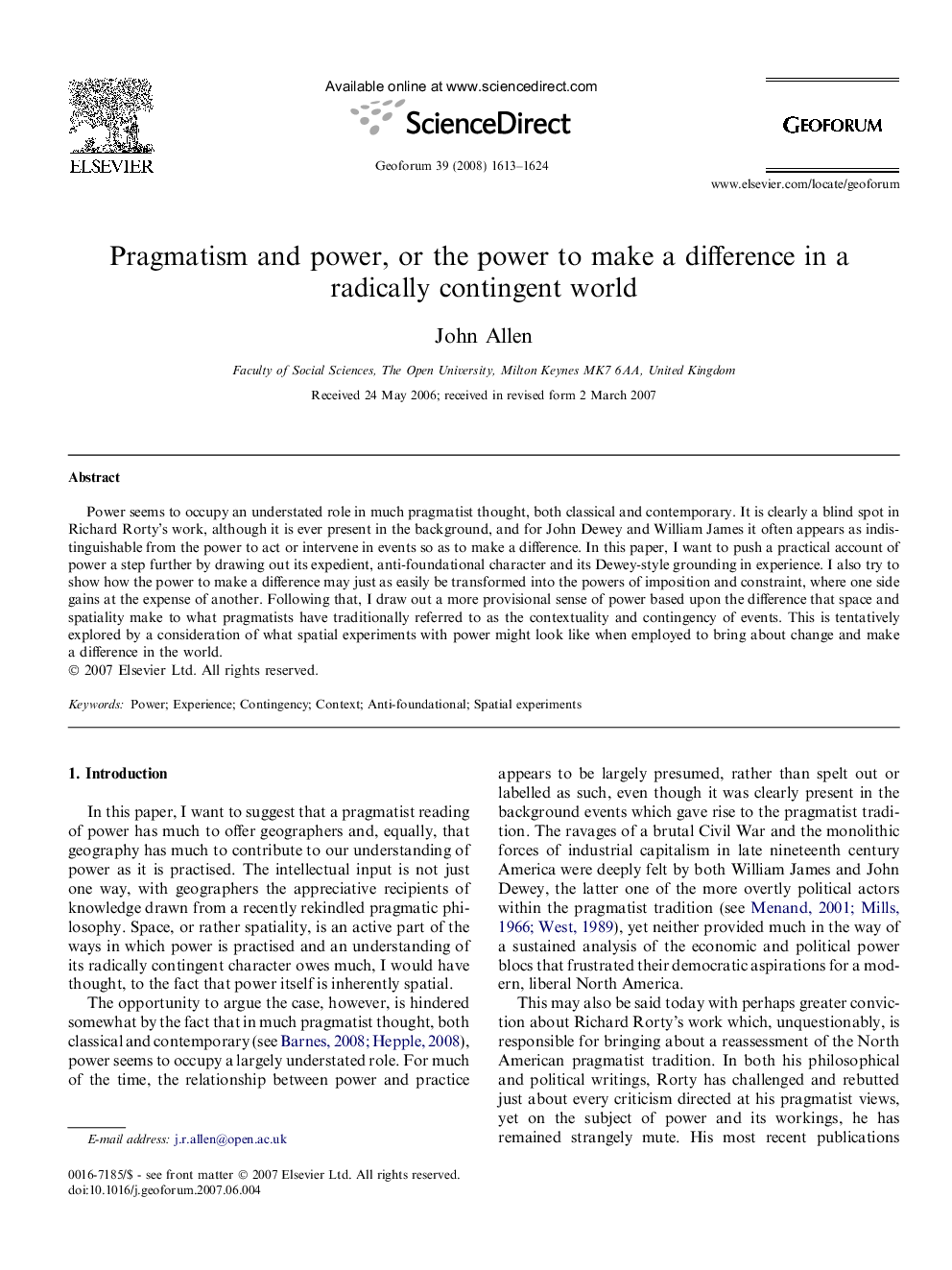| Article ID | Journal | Published Year | Pages | File Type |
|---|---|---|---|---|
| 5074925 | Geoforum | 2008 | 12 Pages |
Power seems to occupy an understated role in much pragmatist thought, both classical and contemporary. It is clearly a blind spot in Richard Rorty's work, although it is ever present in the background, and for John Dewey and William James it often appears as indistinguishable from the power to act or intervene in events so as to make a difference. In this paper, I want to push a practical account of power a step further by drawing out its expedient, anti-foundational character and its Dewey-style grounding in experience. I also try to show how the power to make a difference may just as easily be transformed into the powers of imposition and constraint, where one side gains at the expense of another. Following that, I draw out a more provisional sense of power based upon the difference that space and spatiality make to what pragmatists have traditionally referred to as the contextuality and contingency of events. This is tentatively explored by a consideration of what spatial experiments with power might look like when employed to bring about change and make a difference in the world.
